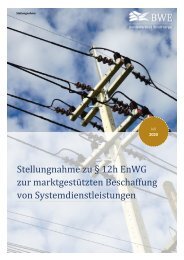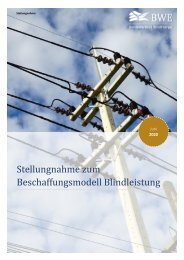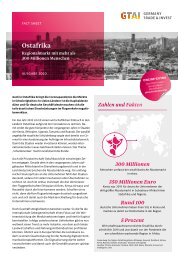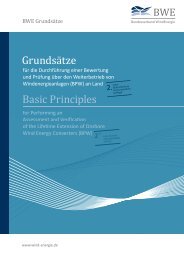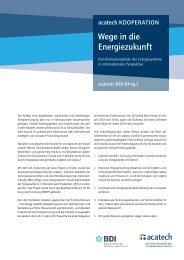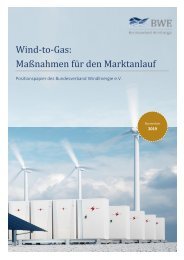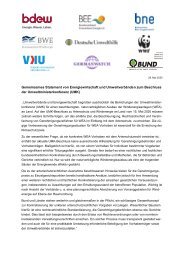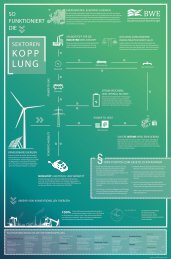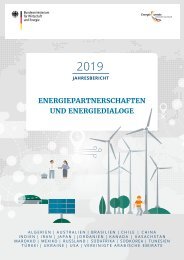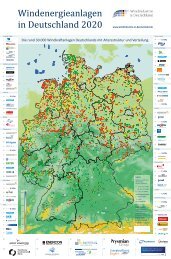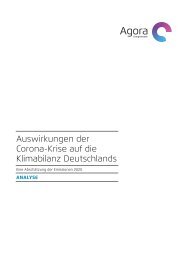vierter-monitoring-bericht-energie-der-zukunft-englische-kurzfassung
You also want an ePaper? Increase the reach of your titles
YUMPU automatically turns print PDFs into web optimized ePapers that Google loves.
24<br />
12 Investment,<br />
growth and jobs<br />
Where do we stand?<br />
2014 was another year in which billions were invested in<br />
the restructuring of the energy supply. This is particularly<br />
true of measures to improve the energy performance of<br />
buildings, to increase the amount of renewable energy, and<br />
to expand the electricity grids. All of these investments are<br />
primarily being un<strong>der</strong>taken by private-sector investors. In<br />
this way, the energy transition is making a contribution<br />
towards the overall level of investment in Germany.<br />
Investment in the context of the energy transition has a<br />
far-reaching impact on other sectors. Via upstream interlinkages,<br />
it generates added value in many areas of the<br />
economy. This investment represents the main positive<br />
influence exerted by the energy transition on economic<br />
growth. A further important stimulus <strong>der</strong>ives from foreign<br />
trade in energy commodities and energy technologies.<br />
The energy transition is helping to change employment<br />
structures. Employment remains at a high level in areas<br />
like renewable energy and conventional power supply.<br />
According to an estimate by Prognos (2015), the energy<br />
industry employs at least 537,000 people. The energy industry<br />
is a horizontal sector and impacts on jobs in a number<br />
of other parts of the economy, e.g. in those which deliver<br />
capital goods for the energy supply.



